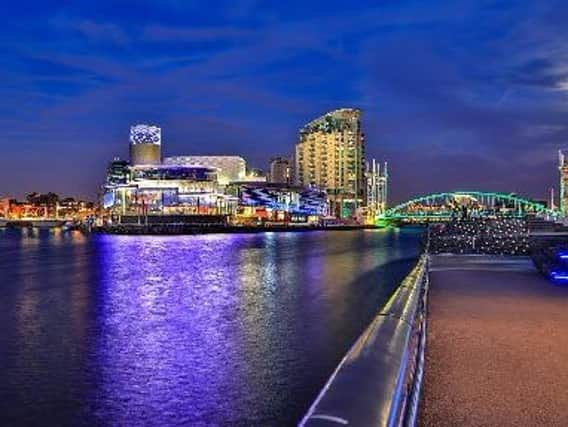David Behrens: A reality check on luring TV types north


So are Birmingham, Manchester and Liverpool. This in the face of protestations from the channel itself that it belongs in London and doesn’t want to move anywhere.
It’s one of those issues, like devolution and the question of whether Yorkshire should have its own mayor, that greatly excites the political classes, especially those in town halls, but fails to capture the imagination of almost anyone else.
Advertisement
Hide AdAdvertisement
Hide AdYorkshire, of course, used to be home to a thriving television industry. I was privileged to be a part of it for some years. The ITV studios in Leeds turned out sitcoms, drama, reality series and some of the nation’s most significant documentaries. Emmerdale is still made at those studios; without it they would have closed down a decade ago. And there is a significant independent sector turning out dramas and factual entertainment for all the main channels.
So it’s perhaps natural for local politicians to think that the relocation of Channel Four to the region would mean more of that. Sadly, the evidence is to the contrary.
The fourth channel has no studio. It does not make and never has made programmes. It commissions them from other companies which are located all over the country. Most are headquartered in London and will continue to be, irrespective of where the channel has its administrative offices.
Those offices are where the staff hold their meetings with producers. The producers would be just as happy pitching in Leeds or Liverpool as in London; the staff less so.
Advertisement
Hide AdAdvertisement
Hide AdLook what happened when the BBC moved whole departments up to Manchester (or Salford, as they insist on calling it): people had to be dragged from west London, kicking and screaming.
It should not have been a surprise. TV types in London have always had a slightly condescending view of the regions, and it’s hard sometimes to avoid the conclusion that events up here are treated with less gravity than those in the south.
The weather is a case in point. If it snows in London, it’s the main story on the six o’clock news. If it’s Barnsley that’s under a blanket, it’s the funny “and finally…” item at the end.
This disdain was never more evident than in the early 1980s when Bradford declared itself to be a tourist destination, and staged a ceremonial welcome party at the station for its first visitor.
Advertisement
Hide AdAdvertisement
Hide AdYou couldn’t blame the city for wanting to change the way it was perceived, but the problem was that its principal attractions for tourists were at spots like Ilkley Moor, which, as anyone who lives in Ilkley will tell you, isn’t really part of Bradford at all.
The BBC’s reporter in Yorkshire tried very hard to get his editors in London to take the story seriously, but he had his work cut out as the events unfolded. As I recall it, as the first tourist stepped off the train, a brass band struck up in the background and the Lord Mayor, concerned that his speech of welcome would be drowned out, bent down to get closer to the microphone, which a sound recordist was holding out of shot. The cameraman zoomed out to see him almost on all fours.
You can guess how it was presented. “And finally... Where’s the last place you’d go for a holiday?” was more or less what the newsreader said.
There have, of course, been some very good expositions of Yorkshire and the North on all channels. But moving Channel Four here will not make them any more frequent. Nor will it create significantly more jobs.
Advertisement
Hide AdAdvertisement
Hide AdThe BBC’s move to Salford was on a far greater scale. It involved the construction of a new studio complex. Yet even that, says the think-tank, Centre for Cities, did little to generate new employment or to encourage businesses to the area. No-one, it says, should expect to see a benefit to their local economy beyond the jobs that the relocation would directly bring.
In the face of hard economic facts, it’s hard to see the clamour for Channel Four in the town halls of the North as anything other than a vanity project. In an age of unprecedented council cuts, every available resource should be spent on real and pressing improvements that will directly benefit the people paying for them – not on the castles in the air of reality TV.